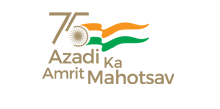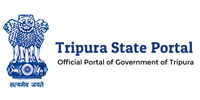Introduction :
- The National Tobacco Control Cell (NTCC) at the Ministry of Health and Family Welfare (MoHFW) is responsible for overall policy formulation, planning, implementation, monitoring and evaluation of the different activities envisaged under the National Tobacco Control Programme (NTCP).
The overall responsibility of the State Tobacco Control Cell at State Level :
- Training of health and social workers, NGOs, school teachers and enforcement officers.
- Information, education, and communication (IEC) activities: Street Dramas, AV spots, Posters, signage, Wall writings, leaflets, Hoardings, Advertisements etc.
- School programmes, Quiz with students.
- Monitoring of tobacco control laws, ie, COTPA, 2005.
- Coordination with Panchayati Raj Institutions for village level activities.
- Focus Group Discussion (FGD) Programmes with vulnerable target groups like slums residents, brick field and tea garden workers, rickshaw puller, clubs and local markets etc.
- Currently 6 nos of Tobacco Cessation Centres (TCCs) have been set up at IGM Hospital, AGMC Hospital, Bishalgarh Hospital, Belonia Sub-Divisional Hospital, Kulai Hospital and R.G.M. Hospital, for the purpose of counselling of tobacco addicted patients and providence of anti-tobacco drugs.
GATS-2, Tripura Report :
- The Global Adult Tobacco Survey -2 (GATS-2) reports prevailed that the prevalence of tobacco users either smoke form or smokeless has increased alarmingly compared to the other states of India as well as from GATS-1 report. 67.5% of men, 61.4% of women and 64.5% of all adults either smoke tobacco and/ or use smokeless tobacco. Among all the states and two union territories where GATS 2 was conducted, the highest prevalence of any type of tobacco as well as smokeless tobacco use is reported in Tripura.60.5% of cigarette smokers and 51.1% of bidi smokers thought of quitting smoking because of warning label. 48.2% of smokeless tobacco users thought of quitting smokeless tobacco use because of warning label. 48.2% of smokeless tobacco use because of warning label.
COTPA, 2003 :
- The Cigarettes and Other Tobacco Products (Prohibition of Advertisement and Regulation of Trade and Commerce, Production, Supply and Distribution) Act, 2003 or COTPA, 2003 is an Act of Parliament of India enacted in 2003 to prohibit advertisement of, and to provide for the regulation of trade and commerce in, and production, supply and distribution of cigarettes and other tobacco products in India. This Act was enacted by the Parliament to give effect to the Resolution passed by the 39th World Health Assembly, urging the member states to implement measures to provide non-smokers protection from involuntary exposure to tobacco smoke.
Present Situation :
- 8 nos. DLCC are formed in West, Dhalai, South, Khowai, Unakoti, North, Gomati and Sepahijala District.
- Observance of World No Tobacco Day on 31st May, 2022 at all Districts along with State Successfully completed. As a part of the day celebration initiatives like mobile van with miking facility for awareness generation at district level, Drama on Ill effects of Tobacco at Educational Institutes, Pledge on” Quit Tobacco” had been carried out.
- Recently, Govt. of Tripura has notified one circular on Statehood Day (21st January, 2022) to ban Tobacco uses in Govt. Office premises and also in Educational Institution to declare “ Tobacco Free Zone”. Till 30th June, 2022 303 Govt. offices, 922 nos. Educational Institutions have been declared Tobacco Free Zone.
- Raids are being conducted once in a month as per decision taken in the State Level Coordination Committee (SLCC) held on 13th December, 2021.
- Presently, 7 Nos. Tobacco Cessation Clinics (TCC) are working for better implementation of NTCP( in West-3Nos. at IGMH, AGMC & GBP hospital, Secretariat Building; Sepahijala- 1 No. at Bishalgarh SDH, South-1No at Belonia Hospital, Dhalai-1 No at Kulai DH and Unakoti-1No at RGM SDH). The Staff of the TCC are doing counseling, follow-up regarding ill hazards of tobacco use and also providing Nicotine Gum.










